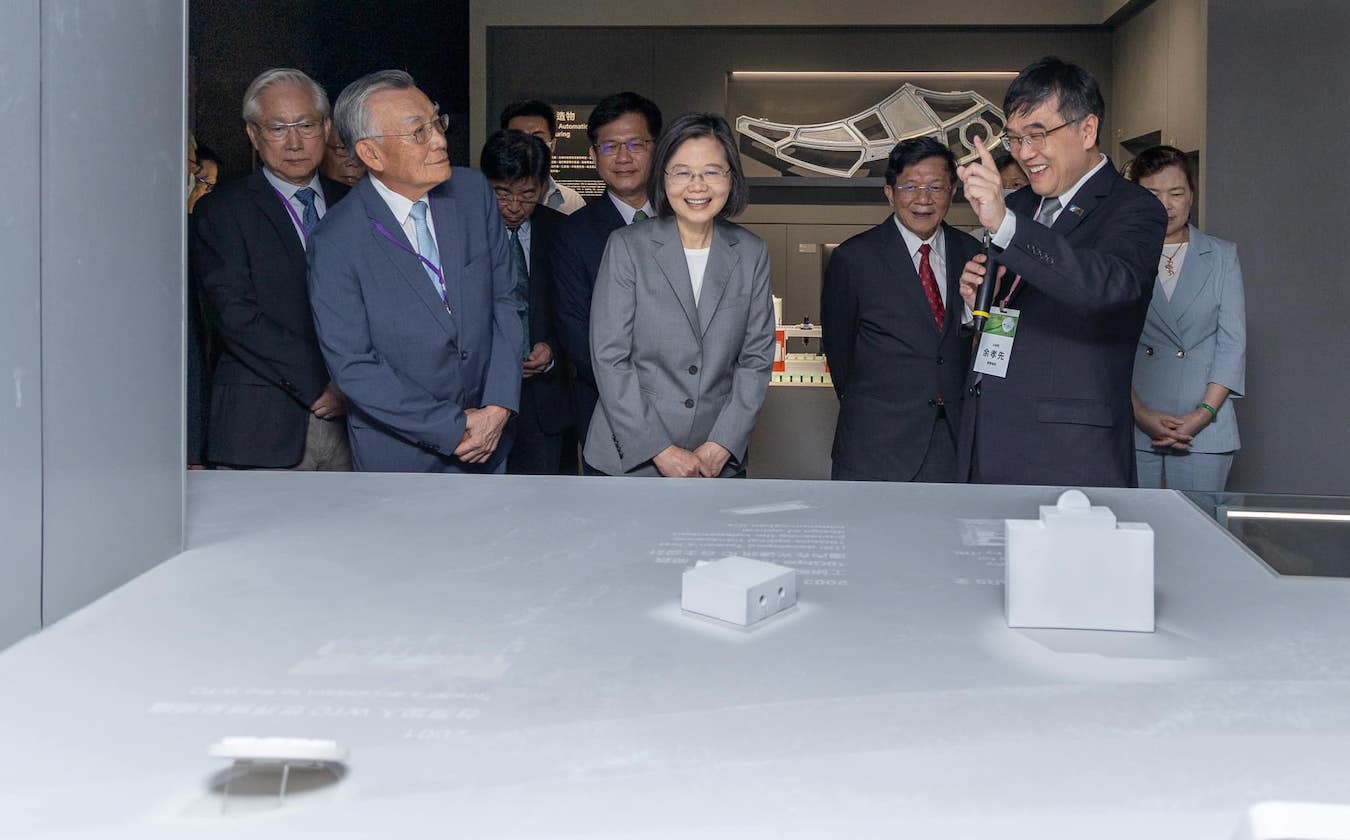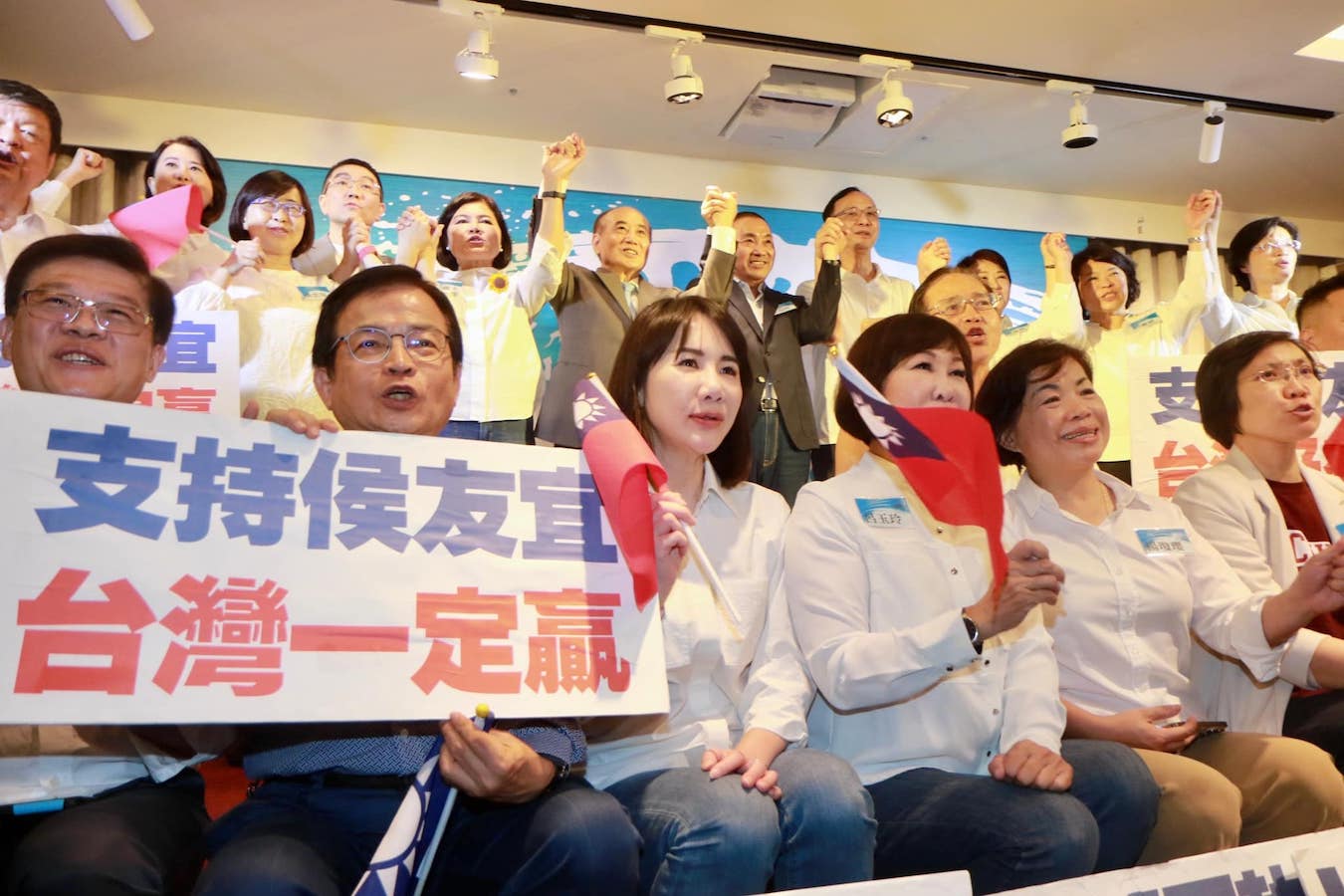by Brian Hioe
語言:
English
Photo Credit: Tsai Ing-wen/Facebook
CRITICISMS OF STRENGTHENING diplomatic ties with Lithuania have become the latest issue attacked by KMT politicians.
In particular, the pan-Blue camp is increasingly leaning into attacks on the successes of the Tsai administration in strengthening diplomatic ties between Taiwan and other countries. This has been most visible with regard to the US.
The pan-Blue camp has been critical of strengthened diplomatic relations between Taiwan and the US on a number of fronts. This has to some extent drawn from the framing that the Tsai administration is provoking China through ties with the US, or that the Tsai administration is putting at risk Taiwan by doing so.
 Taiwanese president Tsai Ing-wen. Photo credit: Tsai Ing-wen/Facebook
Taiwanese president Tsai Ing-wen. Photo credit: Tsai Ing-wen/Facebook
For example, the KMT has criticized efforts by the Tsai administration to purchase Volcano landmines, which would be used for anti-tank tactics in the event of a Chinese military invasion of Taiwan. The KMT accused the Tsai administration of potentially risking Taiwan becoming littered with mines, such as in Cambodia, even though the mines would primarily be used on beaches, are visible to the naked eye, and are triggered by tanks, not individuals.
Likewise, the KMT has sought to attack TSMC’s Arizona plant, suggesting that the Tsai administration has simply “given away” Taiwan’s semiconductor manufacturing giant to the US. That is, western powers are incentivized to defend Taiwan because their electronics supply chains are dependent on Taiwanese semiconductors. The KMT’s framing, however, is that the Tsai administration eroded this by allowing for the construction of the plant in Arizona, even if TSMC itself has sought to reassure that its most critical and advanced processes will remain in Taiwan. As there has been greater international attention to Taiwan’s semiconductor manufacturing prowess in past years, the KMT has also increasingly sought to take credit for TSMC’s successes, seeing as the company’s formation dates back to the KMT’s period of one-party rule.
This proves similar with recent claims that semiconductor cooperation with Lithuania proves to be a form of checkbook diplomacy by KMT legislator Wang Hong-wei. Wang has sought to frame the issue as Taiwan illicitly increasing investment in Lithuania as a form of paying off Lithuania, after Lithuania requested that Taiwan increase its investment to 14 million Euros from the initial 6.5 million Euros agreed on for investing in a Lithuanian company. The request also included a 6.2 million technology transfer fee paid to the Industrial Technology Research Institute.
Checkbook or dollar diplomacy has been an accusation leveled at Taiwan with regard to many of its diplomatic allies, all of which Taiwan is larger than in terms of its population and economy. Taiwan subsidizes infrastructure development projects or slush funds for politicians in return for diplomatic recognition, so that such countries speak up for it in international organizations.
 Photo credit: Hou You-yi/Facebook
Photo credit: Hou You-yi/Facebook
Many of these countries are governed by regimes with questionable human rights records. Nevertheless, the practice primarily dates from the KMT authoritarian era, as a result of which Wang’s criticisms prove ironic.
Where Lithuania-Taiwan ties are concerned, Lithuania signaled that it hoped for strengthened ties with Taiwan during the COVID-19 pandemic through vaccine donations to Taiwan. Apart from hoping for stronger trade ties particularly because Lithuania does not conduct much trade with China, by strengthening ties with Taiwan, Lithuania was likely hoping to signal alignment with the US and other Western countries. Like other central or eastern European countries, Lithuania faces the geopolitical threat of Russia, which the US is a bulwark against–notably, efforts by Lithuania to strengthen ties with Taiwan date from before the Russian invasion of Ukraine.
However, while Wang’s comments dovetail with pan-Blue attacks on the Tsai administration over semiconductor cooperation with other countries, the criticism of the Tsai administration over checkbook or dollar diplomacy may be a narrative that the pan-Blue camp increasingly leans into in the future. If this dovetails with the criticisms of the Tsai administration over semiconductor cooperation, moves by the Tsai administration to use Taiwan’s current advantages in semiconductor manufacturing to increase Taiwan’s international standing will be framed as a means of facilitating corruption or simply eroding away at Taiwan’s key advantages in the field. Nevertheless, it would not be surprising for the KMT to seek to attack the Tsai administration over diplomatic practices that originated during its period of authoritarian rule, and to try and frame international diplomatic successes as, in fact, being failures.

